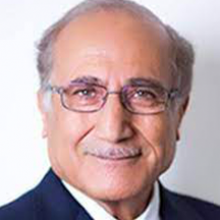You are here
Is the Jordanian economy OK?
Jul 20,2015 - Last updated at Jul 20,2015
When the Department of Statistics published the first quarter 2015 national accounts data, many people exhibited anxiety. Being an economist and an ex-government official, people stop me to ask me “How are we doing?” When do you expect the economy to recover?
This question is tossed at me from people in cars at red traffic lights, in weddings and funerals, over Ramadan iftars, and when walking. Jordanians are deeply preoccupied and apprehensive about their economic
I often say that optimism is my only answer. If I exhibit pessimism, then I am admitting that little can be done to change the current situation. It is true that economics is often and wrongly referred to as a “dismal science”, but I cannot contribute to peoples’ despair and eventual lethargy.
Optimism, to me, is not an unfounded prediction that things will get better. Rather, it is the energy of positive action which makes people exert the effort needed to propel themselves out of their dissatisfactory situation.
The first quarter data indicate that Jordan’s GDP growth was 2 per cent. The reasons may be many and I am sure that the current government and its supporters will find a way to explain this sluggishness.
However, unless something unexpected happens, I expect the second quarter will witness less growth. All economic sectors are showing signs of deeper stillness. With the exception of food, transportation and telecommunications, other sectors are suffering.
Things may improve a little bit in the third quarter. Ramadan, Eid and the near opening of schools will push consumption to higher levels. But, unless real estate, industry and exports show tangible improvement, the economy will have to be content this year with 2-2.5 per cent growth.
We have foreign reserves, but they are growing with the foreign soft loans we are taking. The American government’s collateral and the IMF tranches helped cushion the demand for foreign reserves.
Money supply is growing faster than GDP growth, but the velocity of money is painfully slow.
The government is solving, with some degree of success, its financial bottleneck, but the private economy is not.
Yet, this picture has its built-in contradictions. The Syrian crisis caused an average annual 5 per cent increase in population over the years 2012-2015, but on average it caused an increase in GDP. Yet that growth falls way short of the population increase it had brought. I estimate the per capita income over the period 2012-2015 was decreasing by an average of minus 2 per cent at least.
Over the next four to five years, the situation may be different. If our energy bill shrinks even if oil prices go up because of the renewable energy at home, if we develop our potential to upgrade our industry, use our talent to enhance our competitiveness in medicine, education and IT, we will economically succeed better than our expectations.
As for this year, we should pray for a big gift from our Gulf brothers.
The writer, a former Royal Court chief and deputy prime minister, is a member of Senate. He contributed this article to The Jordan Times.









